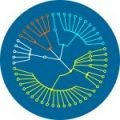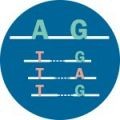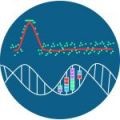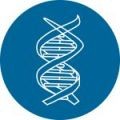
Eukaryotic mRNA Analysis (with reference)
Based on the known genome sequence and annotation information, a new generation of high throughput sequencing (RNA-Seq) data is used as input, and the new transcription sites (new gene) and new variable splicing events are identified. sequencing data quality assessment; sequencing data and sequence alignment of the selected reference genome, identifying the boundaries of exon / intron, analyzing the gene variant splicing, exploring the gene regions and new transcripts, identifying the SNP sites of the transcribed region, the boundary between the 3'and 5' genes, and the functional annotation and enrichment analysis of different samples (groups).
Long non-coding RNAs
Long non-coding RNAs (lncRNA) are a type of transcripts with length longer than 200 nt, which are unable to code proteins. Accumulative evidence suggests that most of lncRNAs are very likely to be functional. High-throughput sequencing technologies and bioinformatic analyzing tools empower us to reveal lncRNA sequences and positioning information more efficiently and lead us to discover lncRNAs with crucial regulatory functions. BMKCloud is proud to provide our customers lncRNA sequencing analysis platform to achieve fast, reliable and flexible lncRNA analysis.


16S/18S/ITS amplicon sequencing
Microbial diversity analysis platform is developed with years of experience in microbial diversity project analysis, which contains standardized basic analysis and personalized analysis: basic analysis covers the mainstream analysis content of current microbial research, the analysis content is rich and comprehensive, and analysis results are presented in the form of project reports; The content of personalized analysis is diverse. Samples can be selected and parameters can be set flexibly according to the basic analysis report and research purpose, to realize personalized requirements. Windows operating system, simple and fast.
Shotgun Metagenomics(NGS)
Metagenomic data is used to analyze the mixed genomic materials extracted from environmental samples, which provides detailed information on species diversity and abundance, population structure, phylogenetic relationship, functional genes, and correlation network with environmental factors.


NGS-WGS(Illumina/BGI)
An integrated analysis pipeline developed for research professionals without prior bioinformatics knowledge and runs on a high-performance server. It facilitates swift completion of tasks like data quality control, sequence alignment, SNP/InDel/SV variation detection, annotation, and mutation gene.
GWAS
Using specific statistical methodologies, GWAS analysis aims to uncover genome-wide nucleotide variations correlated with phenotypic differences. It plays a crucial role in exploring functional genes associated with complex human diseases and intricate traits in plants and animals.


BSA
The integrated analysis platform provides a user-friendly interface for standardized and personalized diversity analysis. BSA analysis involves pooling individuals with extreme phenotypic traits from a segregating population. By comparing differential loci between the pooled samples, this approach rapidly identifies closely linked molecular markers associated with target genes. Widely used in genetic mapping of plants and animals, it is a valuable tool for marker-assisted breeding and gene positional.
Evolutionary Genetics
It's an integrated analysis workflow designed for research professionals with limited bioinformatics expertise. Leveraging BMKGENE's extensive experience in genetic evolution projects, this platform runs on high-performance servers, ensuring rapid and precise execution of personalized analyses. These encompass tasks like phylogenetic tree construction, linkage disequilibrium analysis, genetic diversity assessment, selective sweep identification, kinship analysis, principal component analysis, and population structure characterization.

